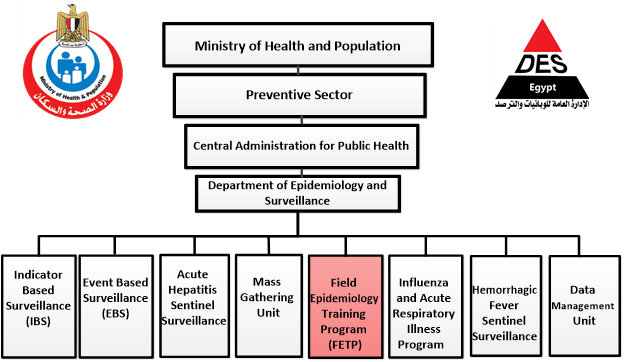Egypt FETP
The Egypt FETP was the second Field Epidemiology Training Program to develop within the Eastern Mediterranean region. The advanced-level (two-year) program began in 1993 in collaboration with the U.S. Centers for Disease Control and Prevention (CDC). In 2017, we introduced the frontline level with the coordination of EMPHNET. And in 2021, we introduced the first cohort of the intermediate level due to the increased need for epidemiologists after the COVID-19 pandemic.
The Egypt FETP is a vital component of the Department of Epidemiology and Surveillance within the Ministry of Health and Population in Egypt. It is an institutionalized program, signifying its integration into the ministry's structure and its recognition as a crucial aspect of public health training and capacity building. This integration ensures that the FETP aligns with the ministry's strategic goals and contributes to the overall improvement of public health practices in Egypt.
Most of the program's graduates have continued their public health careers after graduation working as epidemiologists to serve the preventive sector of the Egyptian Ministry of Health and Population and have filled leadership positions at central and governorate levels.
Several graduates are working for the World Health Organization (WHO), African CDC, United Nations International Children's Emergency Fund (UNICEF), and other international non-governmental organizations.
Benefits to the MoHP
- Increased capacity among staff to recognize and respond to public health problems in a timely and vigorous manner
- Increased completion and accuracy of surveillance data reporting and analysis
- Stronger culture of data-based decision making
- A network of well-trained field epidemiologists and public health managers in the country
- Graduates count towards the World Health Organization and Global Health Security goal of 1 epidemiologist per 200,000 population

